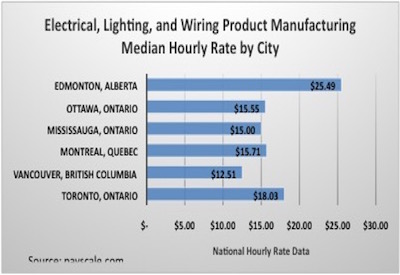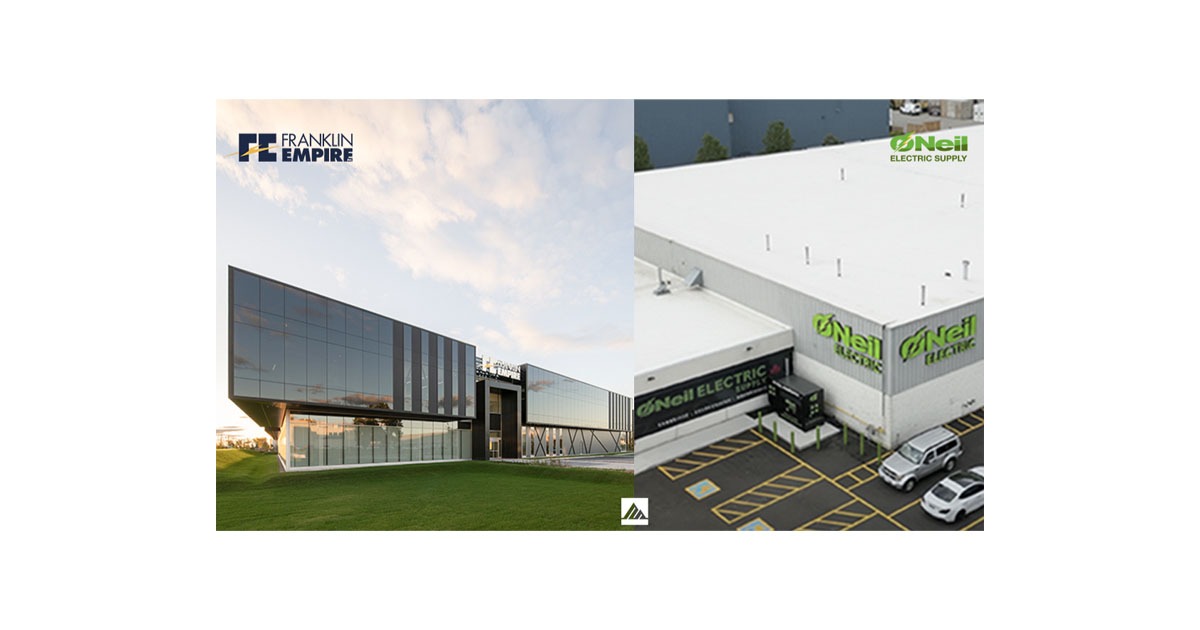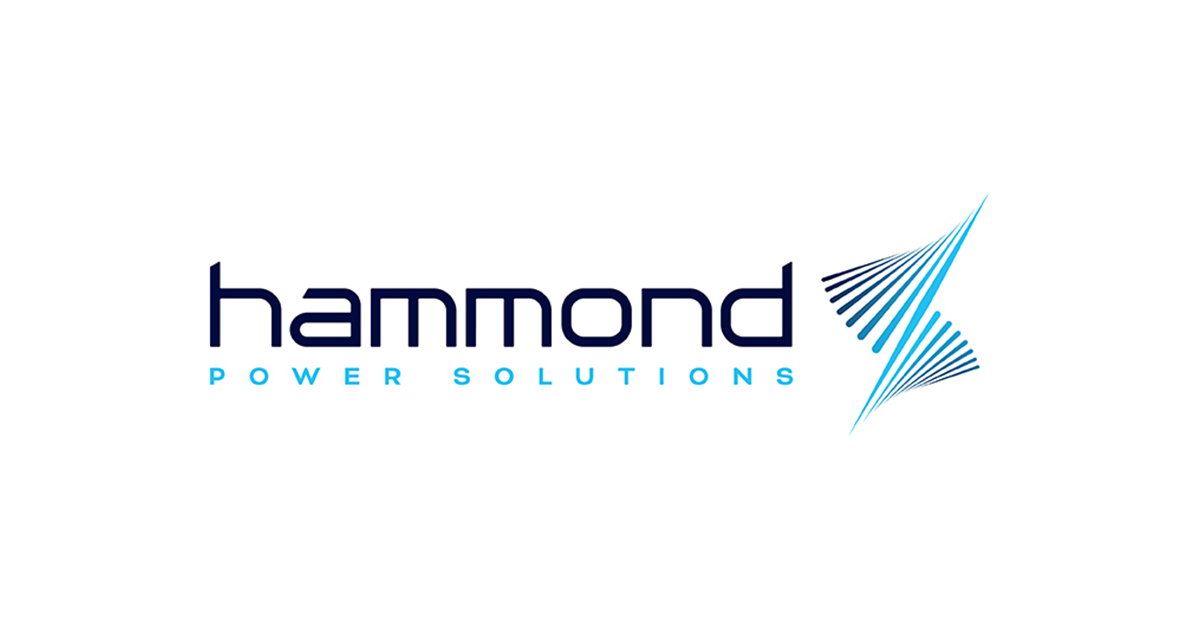Driving the Industry Forward: Discussing the Success of Phoenix Contact with Roland Bent

June 29, 2018
By Owen Hurst
CEW’s sister publication Panel Builder & Systems Integrator recently attended Hannover Messe 2018 to see first hand the future products and solutions being offered within the industry. While attending we had the opportunity to sit down and discuss new products and solutions and the future of Phoenix Contact with Roland Bent, Chief Technology Officer and member of the Executive Board. Also present was Kevin McKenna, General Manager of Phoenix Contact Canada, Angela Josephs, Director of Corporate Communications, and Brad Hammer, National Sales Manager at Phoenix Contact Canada.
Roland has been with Phoenix Contact since 1984 and has held his current position since 2001. Roland’s responsibilities include overseeing marketing and product development as well as innovation and technology management, including corporate technology and value chain, tool shop and metal parts production, quality standards and complaint management, as well managing Phoenix Contact’s international research and development centres.
Below we highlight some of the key points of discussion from our time with Roland, and how this will affect Canada internally and as a player on the global market.
Phoenix Contact was founded in 1923 in Germany, and over the last 95 years has established itself as a global in industrial electronic and electrical connection systems, as well as control products and solution. The company’s global reach is supported by its subsidiary network, which today encompasses 58 countries around the world.
We asked Roland how Phoenix Contact, a company that developed primarily in the electro-mechanical field, came to be so well positioned to transition into a market that is increasingly focused on digitalization.
From the start Roland saw the need for Phoenix Contact to take a holistic approach to digitalization, considering all aspects and areas of the company and the manner in which digitalization can enhance internal operations and solution offerings. Roland noted that the value chain is a key factor, and that for Phoenix Contact digitalization is first being used in its own manufacturing facilities to ensure a clear grasp of the concept and its effectiveness.
In fact, nearly all of Phoenix Contact’s manufacturing is controlled by their own products, making the company its own best customer. Many of Phoenix Contact’s innovations have directly resulted from meeting their own need to drive efficiencies in manufacturing.
Roland noted that the program within the company is largely decentralized. Although there is a focal point for control of facilities he stressed that Phoenix Contact believes that digitalization is best driven by everyone in the company. By ensuring that their facilities and value chain have been successfully digitalized, they are better positioned to provide services and solutions to their customers and will be a guiding factor as we enter into a smart world. Digitalization will allow Phoenix Contact’s products to be enablers for their customers to enter and compete in the digital world.
Digging a little deeper, we asked Roland about the learning curve for digitalization with the in-house testing within the production process, and how this is changing the manner in which customers can order and customize products.
Roland provided examples of how Phoenix Contact has been able to introduce the digitalization process and what it has meant for their customers and business model. He explained that many individuals tend to discuss industry 4.0 and digitalization in terms of a particular product. And so, as customers are thinking products Phoenix Contact is thinking ahead about how to industrialize the process and add value for their customers.
A large portion of value-add comes from digital offerings and digital integration, which require substantial data models, as the essential component to digitalization is data.
Collaboration among companies is the digital integration of the customer into the production process. Recognizing the varying needs of customers, Phoenix Contact has in-house machine builders who have developed production equipment that represents a truly digital process for integration with customers from all over the world. Customers can integrate directly with Phoenix Contact on the development of custom products by accessing Phoenix Contact’s online configurator. Production machines are integrated to take the data set from the configurator and produce the custom product. The overall process is highly efficient and reduces costs and time, providing a customized product to its customers in an efficient manner.
With the discussion continuing to circle back to industry 4.0, we asked Roland how Phoenix Contact would define Industry 4.0.
He noted that Industry 4.0 and digitalization are literally all around us, in our business, personal and social lives. It is a major part of our energy systems (e.g., the rise of smart grids), healthcare, smart homes, and integrated buildings. It truly utilizes the Internet of things (IoT) and the Internet of Services (IoS).
With regard to vertical integration, Roland spoke about a focus on the production industry but stressed that this is only a piece of the puzzle, and that vertical integration requires full product consideration from configuration, order, production, product lifecycle and eventual recycling.
Horizontally Industry 4.0 encompasses all aspects of the business including the value chain from warehouse to warehouse, logistics, the complete supply chain, administrative processes, R&D, and sales.
Phoenix Contact’s horizontal integration has been incredibly successful. However, in terms of Industry 4.0 the focus is now primarily on vertical integration.
Our discussion of digitalization and industry 4.0 led to cybersecurity and how this concern is affecting and changing the way Phoenix Contact approaches both production and product security.
Roland noted that cyber-security is a critical issue for Phoenix Contact that has and is receiving a great deal of attention. Phoenix Contact has recognized that as products and internal production have advanced there was a need for increased protection and 10 years ago instituted a cyber-security division to oversee protection of the internal digital infrastructure as well as networked product security. Alongside that as full control solutions have been developed Phoenix Contact has continued to advance its security offering, particularly in its role as a provider of critical infrastructure products and solutions.
Phoenix Contact is not only developing security for themselves and their products, but they are a provider of cybersecurity solutions. Their focused department ensures that Phoenix Contact is a leader in the development of cybersecurity rather than a reactionary force. Roland expressed that in a world with technology that advances as fast as it does now there will inevitably be issues. However, through Phoenix Contact’s cyber-security divisions the company is well placed to address any security and data breaches and has the structure in place to provide notifications to its customers in the event of an issue and to assess and correct.
I found this point very striking. It is not uncommon to hear about cyber-security issues well after they have happened, or at the least to be provided minimal details. The fact that Phoenix Contact has a strategy in place to provide its customers with transparency regarding any issues is a vital component to both protection of the company and its customers as well as key to the operational nature and relationship development that is core to Phoenix Contact’s philosophy.
Following the cyber-security discussion, we turned to a little more detail on the products and solutions being offered by Phoenix Contact.
Specifically, we asked about their new Programmable Logic Controller PLCnext and how it has taken a standard PLC to the next level. First, Roland immediately identified that PLCnext was an idea that came from their customers, and that Phoenix Contact developed PLCnext to meet a growing need that their customers had identified.
It was identified that there was a growing need for an industrial PLC that could address rapid changes in technology and was flexible in its ability to be upgraded without having to physically change the controller. The solution was PLCnext.
Roland explained that PLCnext is capable of talking at a higher language and operates much faster than traditional PLC’s. The primary value is the ability to include add-ons through the PLCnext’s network capabilities. Not only does PLCnext provide real time data from the system it controls, the network connection allows the controller to be upgraded and have additional add-on functions incorporated.
PLCnext takes all the advantages of a traditional PLC along with the incorporated abilities found in new technology and packages it within the traditional PLC set-up allowing it to be scaled up or down depending on the tasks it is performing.
An important feature of the new technology is its cloud connectivity. Phoenix Contact has recently launched its own cloud platform, Proficloud. The cloud connectivity platform is taking Phoenix Contact solutions into the future. The platform allows customers to control and monitor their data. PLCnext is at its core machine automation as new features can be downloaded and added to increase functionality, as well as allowing customers to develop their own apps, with programming language of their choice, or 3rd party applications to include in their program.
This functionality and flexibility is the future of the industry, which is all about advanced connectivity and the ability for customers to make additions to their systems with a simple download.
The discussion of connected products brought us full circle to the manner in which Phoenix Contact conducts its own operations. Offering networked products truly obligates having a networked company.
Phoenix Contact’s R&D departments are networked in a manner that allows the development of product structures across various fields. Roland noted that not too many years ago networking in this manner was not necessary for all fields. This is a relatively new idea, but as sensing and computing capabilities are being built into products an open development structure is essential.
For example, departments developing power quality products like UPS were not typically focused on open networks. However, they are now working within that channel. Product development is now about more structure and networking and bringing people in early to develop virtual centres of competence.
Phoenix Contact is very much ahead of the game in this respect. They have recognized the need for a standard within the organization and Roland stated that they “believe strongly in the power of decentralized organization units with a product focus that has helped to accelerate opportunities and businesses.” This internal organic growth is benefitting the Phoenix Contact business model and ensuring that their production and development is growing with the technology and allowing full competence in addressing the changing technology and market.
Finally, we turned to the distribution channels for Phoenix Contact, and in particular to gain insight into how the Canadian market falls within the global Phoenix Contact footprint and distribution model.
The complete channel strategy for Phoenix Contact globally is truly an omni channel strategy that utilizes distribution channels and a growing Phoenix Contact sales force. In all, Phoenix Contact has a diversified model in terms of market, product and customer with defined localized strategies that adjust sales to the needs and behaviours of local markets.
Every market is different, and it is essential for a global company like Phoenix Contact to recognize how each market operates, who the key players are and what industry they are primarily serving. One notable feature is that as products become more technical we are seeing an increase in hybrid distribution channels that are focused less on the traditional electrical industry but have identified the growth of the automation and control market and are directly servicing that industry.
A primary part of this is the fact that Phoenix Contact talks in the language of the end-user, creating a much closer relationship and communication strategy that allows them to better identify the product and solution needs of particular sectors.
In terms of distribution and understanding distribution channels the vastness of Canada presents its own challenges. Rather than considering Canada as a broad market, as is possible with other countries, it is necessary to break the country down by province. Phoenix Contact has recognized this and assesses the Canadian market in this manner. An important and rising fact in Canada is the focus on hybrid distributors and a direct salesforce. The number of hybrid distributors has substantially increased in recent years, which presents a unique selling point for markets like automation and control.
Further, as companies like Phoenix Contact continue to diversify their offerings to include more solution applications the growth of a direct salesforce becomes increasingly essential. System Integrators are a primary driver of this as they are less product focused and more solution driven.
Kevin McKenna, the head of Phoenix Contact Canada, built upon this view noting that in Canada it is essential to be highly agile. Kevin reinforced that when looking inside Canada certain areas must be approached differently. Quebec for instance has a market that more closely resembles European markets than any other Canadian province as it has developed and embraced collaborative efforts faster than other provinces. Recognizing this Phoenix Contact is working to drive this type of advancement across Canada by developing solution partners that operate with domain expertise (e.g., water, transportation, energy…).
From product development to solution offerings and a unique distribution pattern Phoenix Contact is a driving force in the automation and control industry that shows no sign of slowing down but is focused on taking its offerings to new heights. It’s focused efforts as a solution provider have them well positioned to continue their advancement within Canada where they are driving not just products and solutions but are pushing the distribution and sales channels to new levels of integration and efficiency.
Owen Hurst is Panel Builder & Systems Integrator.










